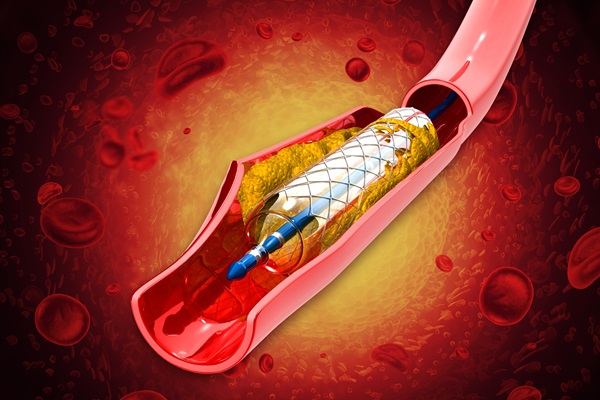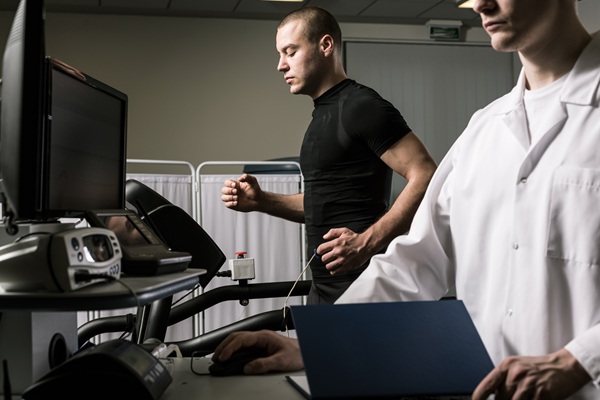How an Echocardiogram Can Determine Whether You Need Angioplasty

Concerned you may need an angioplasty soon? Read on to learn more about this procedure. Treatments like angioplasty might be recommended after an echocardiogram, which is also informally known as an echo. An echo is an ultrasound procedure that uses sound waves to examine the function and structure of the heart. It is used to diagnose various heart issues like valve disease and cardiomyopathy.
Determining whether an angioplasty is needed with an echocardiogram
A cardiologist might recommend procedures like stent placement and balloon angioplasty based on the results of your echo test.
During the procedure, a hand-held wand is placed on the patient’s chest and used to take photos of the heart and its structures. These pictures are used to evaluate how well the patient’s heart is pumping blood. Echocardiograms are typically combined with Doppler techniques to examine blood from through the heart’s valves.
Unlike x-rays and radiograms, echo tests do not use any radiation, making them safe for all patients. The different types of echo tests a cardiologist might order based on a patient’s symptoms include:
- Exercise stress echocardiogram
- Transesophageal echocardiogram
- Transthoracic echocardiogram
What to expect after getting an echocardiogram
The cardiologist’s findings determine what comes next after a patient’s echo test. Patients who do not have significant blockages might be asked to make lifestyle improvements like quitting smoking, losing weight, exercising more often, eating a healthier diet, and getting more sleep.
Patients with moderate symptoms might be prescribed medication to address them. For example, a patient with plaque build-up in their arteries might be prescribed medication that lowers their cholesterol levels.
Surgical treatments are typically used as a last resort when treating heart disease. Some of the surgical procedures that might be recommended include:
Angioplasty
Also known as percutaneous coronary intervention, this procedure is used to remove blockages caused by coronary artery disease. The procedure restores proper blood flow to the heart, eliminating the need for open-heart surgery. Angioplasty can be performed as an elective procedure if a cardiologist suspects a patient has heart disease. The procedure is also used as an emergency treatment for heart attacks.
During the procedure, a catheter is inserted into a blood vessel and guided to the blocked artery. The catheter inflates a small balloon that is attached to its tip once it gets to its destination. The balloon pushes plaque or clots in the artery against its sides, creating more room for blood flow.
A special type of x-ray called fluoroscopy is typically used to detect blockages in arteries during an angioplasty.
Atherectomy
This procedure is often combined with angioplasty. It involves using a catheter with a rotating tip to remove plaque and other buildups inside an artery.
Stent placements
Stents are used in almost all angioplasty procedures. These tiny, expandable metal mesh coils are placed into newly opened regions of arteries to prevent them from closing back up. Some stents are coated with medication to help improve blood flow.
Ready to set up an appointment?
Think you may have a heart condition? Contact our office today to set up an appointment with a cardiologist.
Get more information here: https://boyntonbeach.floridapremiercardio.com or call Florida Premier Cardiology at (561) 229-1411
Check out what others are saying about our services on Yelp: Angioplasty in Boynton Beach, FL.
Recent Posts
According to the Centers for Disease Control and Prevention, heart disease is the leading cause of death for adults in the United States. Therefore seeking chest pain treatment is crucial, especially for those at high risk for heart disease. However, chest pain can result from various health issues, so how does one know when it…
A cardiac stress test is a diagnostic tool to evaluate how well the heart performs under physical stress. Cardiologists use this test to detect underlying cardiovascular conditions, monitor treatment progress, or assess the risk of future heart complications. Cardiac stress tests are essential in the early detection and management of heart disease.A cardiac stress test…
Peripheral arterial disease affects blood flow in the arteries, most commonly in the legs. It develops due to plaque buildup in the arteries that causes them to narrow and restrict circulation, possibly leading to discomfort, difficulty walking, and other serious complications. Recognizing the symptoms early and exploring treatment options can help improve the quality of…
Receiving cardiovascular treatment is a critical step in managing heart health, but recovery and long-term are equally vital to ensure long-term wellness. Whether the treatment involves medication management, interventional procedures, or surgery, maintaining a relationship with the cardiologist and following their recovery guidelines is crucial. A structured follow-up plan allows patients to maintain the benefits…


